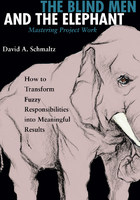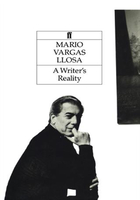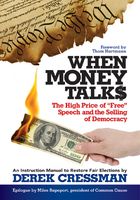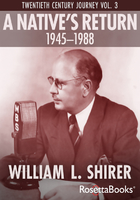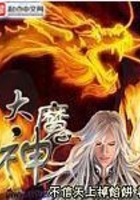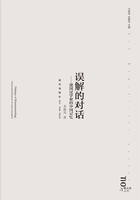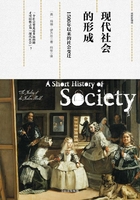The gate was shut. Patchwork shadows shifted over untended grounds and broken masonry. From the gloom of overhanging trees a tired mansion stared at Yeats through shuttered windows. All through the winding roads of "Poet's Lane" he envisioned something more glorious—medieval, perhaps, a place displaying a coat of arms or ceremonial swords above the door. After all, his grandparents had come from England a long time ago and must have brought some curious old country things with them. He glanced back at the road that had brought them to this place and then to his parents, who sat motionless in the car.
For much of the ride his mother had been strangely silent, watching the brick houses and weeping willows blur by. Her malaise seemed to deepen as she glanced from her husband's white-knuckled grip on the steering wheel to the street signs. Tennyson, Swift, Coleridge: every street named for dead poets.
Yeats's father, Dr. William Trafford, quoted each poet as they drove, mumbling snippets of ballads and sonnets as if offering ride-along eulogies. Propping up his glasses for the fifth time in several minutes, he gave a nervous cough. When he brought the car to a halt, Mrs. Trafford gave a long sigh. She winced when Yeats leapt out of the car.
Yeats toyed with the latch on the gate. A cobbled path meandered through weeping willows to darkness and the front door. Sinister would have held promise, but this house appeared … forgotten.
"Does anyone even live here?" he murmured.
His father smiled feebly. Leaning out the window, he called, "Heads up, son! It's an interesting place. At least, it was when I was growing up. There's lots to do." He cast a nervous glance at the yard, then turned to his wife. "Right, Faith?"
"No, William," she said. "Which is precisely why we're only staying the night. It's a house of dead poets."
"I'll be fine," Yeats interjected. "And don't worry, Mom." He swung back to the car. "I'll get the bags, then, Dad?"
"Thanks, son. That would be nice."
As Yeats hurried past the open car window to the trunk he noticed his father furiously polishing his glasses.
William blew on the lenses before submitting them to another round of nervous cleaning with his handkerchief. This was a "revitalization weekend," another attempt at curing his bouts of depression, and likely, the last with his wife accompanying him. The tension was unbearable.
The university where they lived was quiet in the final month of summer, leaving him free from academic responsibilities until the fall term. But most revitalization weekends were spent at a spa or the hot springs and not on a long drive into the country. It did not help that the weather was turning foul. William pursed his lips. What could he do? This is where it all had happened. He cleared his throat. "I told Mum we'd stay for the weekend."
Silence.
Yeats froze with his hand on the half-open trunk. His mother's profile stiffened. "You never said that. You said 'for the day.'"
Yeats swallowed. This was it, the last straw. He looked down the length of the car and then said loudly, "Mom, I'll take your bags too." When she didn't respond he closed the trunk and listened.
"Come on, Faith," his father was saying. "We're here now. We can decide later. These things take time. There are no guarantees. I can't predict what will happen or if anything happens at all. It's been twenty years!"
Through the rear window Yeats watched them exchange glances. He breathed again when his mother, barely audible, said, "I know. It's this place. It makes me uneasy."
"It never used to make you uneasy."
"I didn't know much back then. Still don't."
The door of the house opened with a creak. Someone stepped onto the porch, but branches blocked Yeats from seeing the figure clearly.
His mother leaned out of the passenger door, hooking Yeats with a glare. "Don't tell her how long we're staying in case our plans change. Don't mention what we think of your school. Say 'Everything is fine.' You can call her whatever you want. She won't tell you, so you'll have to decide on something."
"Call her Gran," his father said.
Gran. He barely remembered her. She had an English accent. She had visited them one Christmas, long ago. And yet, through a thousand kitchen conversations with his parents, Yeats knew her thoughts on every topic. His parents were moving now, unbuckling seat belts and opening doors.
The instructions continued.
"Avoid the subject of religion."
"Oh, Faith!" William groaned. There was an intake of breath. "Here she comes," William said. His body had gone rigid. "Get out of the car. She's on the stairs."
"Whatever happens … Yeats! Look at me!" His mother got out, her eyes wide. "This is an odd place. Stay away from closed doors, all right?"
Yeats frowned.
The car doors slammed simultaneously.
Inside the house, the vibration reached to the farthest room. One book teetered on its shelf and collapsed, creating an enormous cloud of dust. The dust spread, reaching the main window. The particles splashed against the pane as if eager to see the new arrivals.
Yeats's mother rallied her confidence. "Hold my hand," she said to Yeats.
"Mom. I'm twelve."
"I need your hand."
Now not only was his throat constricting but Yeats's spine prickled as well. He watched his father head up the path toward the house. "Maybe we shouldn't stay," he suggested, setting down the luggage. "This doesn't feel right. Dad's really nervous. And you're jumpy! Let's go home." And home meant keeping the specters away from his father for a little longer. Depression usually followed a revitalization weekend—plunging his father further into gloom instead of bringing him out of it. If he could keep his mother hoping, keep things normal, their little family might stay together.
She shook her head. "Your father has to do this. At least, he says he does. And why we need to stay the weekend …" She tucked several blond strands behind his ear. "Don't be angry, Yeats."
"I'm not."
"You're scowling," she countered.
He shrugged. "It's just frustrating."
She patted his cheek. "I know. And you're a hero. You bear his burden as if it were your own. You're as loyal as a badger." Her eyes flickered to the house. "But I won't let this go on much longer."
Yeats wiped the scowl from his face. "There. Now, please tell me why everyone is so nervous about this place."
Her hand trembled. "It's not just the place. It's an anniversary of sorts. A twentieth. Come on, Son. Come and meet your grandmother. And her house!"
Ahead of them Yeats saw his father embrace Gran.
"Faith!" croaked a voice.
"Hello, Mum."
Yeats saw tangled white hair, a robe—not a dress. Unlike with his father there was no distant sadness about her. Rather, it seemed to Yeats that she took in her long-absent family with wise, experienced eyes. Breaking from her daughter-in-law's embrace, she looked at Yeats.
"Oh, don't worry, young man. I won't kiss you. I'm not so old as to forget unwanted affection."
Despite his apprehension he broke into a grin. Her confidence was contagious and a welcome relief from his father's anxious banter throughout the car ride.
She returned the smile. "'Drink to me only with thine eyes, and I will pledge with mine.'" She raised her hand, toasting him. "That was Ben Jonson. But you knew that."
"We haven't pushed poetry," his mother said.
Gran winked at Yeats. "It's never too late to become a poet. My goodness, you're a strapping lad!" She held out her arms. Her grip was sure and firm. Yeats patted her back clumsily, hoping she wouldn't comment on his long hair.
"I haven't been squeezed by so handsome a young man in a thousand years!" She took his hands. "Goodness! Look at those paws. The size comes from your side, Faith. We never had much height." She beckoned. "Inside. The tea is fresh."
Old stones peeked out from the wildness of the garden as they mounted the steps. "What did that used to be?" Yeats murmured. The remains of a wall and a fountain's gaping mouth watched him take the last stair.
The kitchen was wide and bright and the kettle heralded their entry with a burst of whistling steam. There were bundles of dried plants hanging from the ceiling and the scents of the garden lingered when the door closed. Several doorways branched to hallways that hinted at the mansion's deceptive nature: the house was secretly enormous.
Around a short wall the kitchen opened to a dining room and beyond that … Yeats caught his mother's gaze arrested by a door at the back.
A cat scuttled across his feet.
"Odysseus!" Gran called. She scooped up the cat and scratched under his chin. Then she turned to Yeats and handed him the cat. "He owns the place. At least, he believes so. Half the time I do too. Would you take charge of him? I will be busy. He dines twice a day—one treat before bed—and needs to be let out for personal reasons as requested."
Odysseus placed his forelegs firmly against Yeats's chest and gave him a long green-eyed stare. As Yeats turned, Odysseus swatted playfully at his hair.
"You like that, do you?" Yeats asked.
"Ah," Gran said. "You will be good friends."
William stood paralyzed, transfixed by the cat.
"Yes." Gran smiled. "Odysseus is still with us."
"Mum," William said. "He can't be—it's impossible …"
"There are stranger things than Odysseus in this house, my dear. You should know that."
A bell jingled somewhere. "Ah, Mr. Sutcliff," Gran said, snapping her fingers.
"Sutcliff?" William blanched even whiter.
Faith frowned. "He's here, Mum? He lives here?"
There was a long pause while Gran reached for a box of tea. "Of course he lives here. Upstairs. In William's old room."
William wiped his glistening forehead. Whoever Mr. Sutcliff was, Yeats decided not to like him. They had been in the house hardly five minutes and twice Yeats had seen his father upset. He squared his shoulders and prepared for the worst. His mother looked ready to walk out the door.
Gran fussed at the stove and returned with a tray of tea and cookies. "Would you prefer him on the streets, William? Hungry, lost, alone."
William squeezed his eyes shut. "Of course not. But perhaps we should go."
Yeats locked eyes with his mother.
"Where, William?" Gran asked quietly. "Where will you go this time?"
Yeats pressed his cheek against Odysseus. "Don't worry, little guy," he whispered half to the cat and half to himself.
William sat down heavily. "We've had this conversation before."
"Since before Yeats was born," Gran agreed.
"I'd like to leave Yeats out of it," Faith said.
"Why?"
"Because he's doing so well. Good in school, sports, and for the first time in his life, he's spending more time with friends than worrying about his father."
William shifted uncomfortably.
Yeats winced. It was true. He had been going out more lately, but it was difficult to call anyone a friend, as yet. He'd met a few interesting kids on the university endowment lands, but he didn't want to raise too much hope. His family always moved before anything could stick—they had lived all over the United States. He looked around the room. "Can someone tell me what is going on?"
No one said anything.
He maneuvered Odysseus onto his shoulder. "I know something happened here. A long time ago. Something bad. I want to help."
"You see?" Faith threw up her arms. "Just when we're getting him to a normal space, something comes up."
"How did you know something happened here?" his father asked sharply.
Yeats touched noses with the cat. "You and Mom talk at night. At least, you used to."
"Handsome and intelligent." Gran nodded approvingly.
The bell jingled again.
"Yeats." Gran pushed the tray forward. "Will you take these to Mr. Sutcliff, please? Odysseus will show you the way."
On cue, the cat broke free from Yeats's arms and leapt to the floor. His eyes held Yeats's momentarily before he padded for the stairs. William drew his legs back as if the cat were poison.
Yeats stared down the hallway. Taking tea to someone he had never met, someone who rang a bell for service, was a little weird. His father began polishing his glasses again. His mother looked furious.
Yeats reached for the tray. "Love to."
Gran didn't let go. Her grip was strong, as powerful as her smile. "Mr. Sutcliff will eat two of the cookies. Don't eat the remaining two. I will collect those tonight when I take him dinner. Later you may have as many as you like."
"Why doesn't he eat all of them?"
Her gaze flickered to his parents. "He is waiting for someone."
Odysseus yowled.
"My, my, Yeats." Gran shook her head. "Flaxen hair! And just look at those eyes. They're William's! Insatiable curiosity. That will lead to adventure. Off you go! The tea is growing cold."

